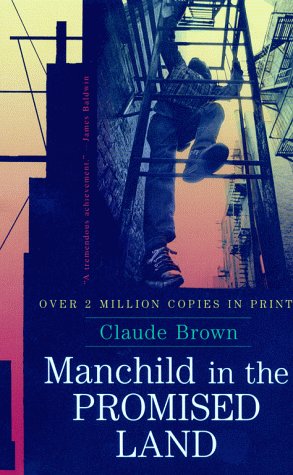 I was reading Claude Brown's semi-autobiographical Manchild in the Promised Land in bed last night when I read a short and rather important passage. It reads:
I was reading Claude Brown's semi-autobiographical Manchild in the Promised Land in bed last night when I read a short and rather important passage. It reads:
"Look, Mama, when people start ruling people and they rule 'em wrong, in a way that's harmful to them, they have to stop them. They've got to rebel; they've got to get out from under their rule. Sometimes it requires a fight, but it's always going to require a little bit of commotion, a little bit of anger, and sometimes violence.
You've got to stop them before they destroy you. That's all that's going on around here. Everybody is rebelling. You see all the young boys going around here using drugs. They're rebelling, that's all it is. They're rebelling against their parents. If they were any drugs around here when I was a little boy, I would've been using 'em too. I had to rebel. I had to get away from all that down-home nonsense you [have] been talking."
What is embodied in this short passage is the notion that any anti-racist stance cannot be a passive one. Any point of view which begins with something to the effect of 'well my [white] ancestors never held slaves..' or (more commonly here in the United Kingdom) 'I don't mean to be racist but...' -- any opinion which begins in such a way masquerades (at best) as passive anti-racism but in all honesty is just racism by another name. The need for any anti-racist opinion to be an active one is illustrated clearly by Brown.
The last sentence is important as well. In one single line Brown characterises the changing scenes in which the typical African American alpha-male appears. Whilst his parents grew up in and were more familiar with the Southern countryside, Brown and his brothers and sisters were only used to the urban sprawl of Harlem. They were the first generation to grow up in the urban ghettos of the Northern United States, and the first generation of African Americans not linked to the cotton fields and plantation life. Brown realises his mothers lack of understanding about what is happening out on the streets of Harlem is born out of her Southern attitudes and his inability to change.
One should not forget that Brown himself did not have to change because he was born in the ghetto and grew up there. What was foreign to his mother and his parents generation was second nature to him. He characterises this earlier on in the book through the linguistic differences: his parents generation spoke words that he and his brothers and sisters did not know the meaning of, and his generation had their own modern ghetto slang, culminating the use of the word 'baby'.
Oxford English Dictionary
Tuesday, March 31, 2009
A Quick Lesson from Mr. Claude Brown
Posted by
Daniel C. Wright
at
09:08
![]()
Labels: African American Literature, African-American, Anti-racism, Claude Brown, Deep South, Drug use, Family, Ghetto, Harlem, Manchild In The Promised Land, Plantation, Slavery Legacies
Subscribe to:
Post Comments (Atom)



No comments:
Post a Comment